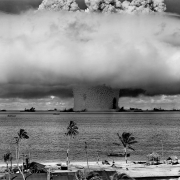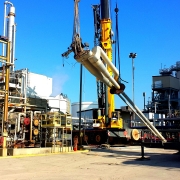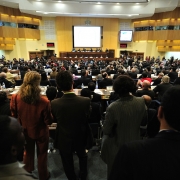What is the relationship between Vietnam and the ASEAN countries?
Topic of Study [For H2 History Students]:
Paper 2: Regional Conflicts and Co-operation
Source Based Case Study
Theme III Chapter 2: Growth and Development of ASEAN: Intra-ASEAN Relations; relations between ASEAN and external powers
The Cold War lens: Consequences of the Second Indochina War
During the Vietnam War, the Paris Peace Accords were signed on 27 January 1973, which provided an official basis for the full withdrawal of the American troops from South Vietnam. As part of the 1969 Nixon Doctrine, the reduced commitment of the USA in the Asia-Pacific meant that there was a corresponding decline in its military presence in Thailand and the Philippines.
However, Hanoi held deep suspicions of the US motives of manipulating ASEAN as a Cold War instrument in the region, which conflicted with ASEAN’s neutral position as declared under its 1971 Zone of Peace, Freedom and Neutrality (ZOPFAN). Even after the Paris Agreement, some ASEAN member nations maintained relations with the Provisional Revolutionary Government of the Republic of South Vietnam (PRG), which Hanoi interpreted as a confirmation of its suspicions.
Besides, tensions were high as Thailand turned to China for help with its looming border security threat. In February 1979, Vietnam and China clashed in a short military confrontation, which could be seen as an extension of the Sino-Soviet split.
In Hanoi’s view, ASEAN is both an offshoot and a disguise of the US-led SEATO that serve the US interests and this explained the “insincerity of ASEAN proposal of neutrality”. Thus, in Hanoi’s future relations with ASEAN the opposition aspect would be greater than the cooperation aspect. Moreover, cooperation should serve to drive a wedge among ASEAN member states, that is “to exploit contradictions among those in the opposite side”, which had become one of the guiding principles of the Vietnamese foreign policy with respect to ASEAN.
An excerpt taken from “Flying Blind: Vietnam’s Decision to Join ASEAN” by Nguyen Vu Tung.
After the fall of Saigon, Deputy Foreign Minister Phan Hien raised a ‘four-point position’ in July 1976, which antagonised ASEAN nations. For instance, one of the four points stated “Regional states should develop cooperation among themselves in accordance with the specific conditions of each state and in the interest of genuine independence, peace, and neutrality in Southeast Asia, thus contributing to the cause of world peace.”
At this stage, Vietnam refused to recognise ZOPFAN and join ASEAN.
Mounting Tensions: The Third Indochina War
In December 1978, Vietnamese troops invaded Kampuchea, causing the outbreak of the Third Indochina War that alarmed ASEAN. On 7 January 1979, a pro-Vietnamese government known as the People’s Republic of Kampuchea (PRK) was formed. As a result, ASEAN-Vietnam relations soured.
In response to this gross violation of national sovereignty, ASEAN made repeated joint statements to call for the immediate withdrawal of foreign troops from Kampuchea and the recognition of self-determination. In particular, ASEAN took the lead in calling for the formation of the Coalition Government of Democratic Kampuchea (CGDK) that comprised of three anti-Phnom Penh factions in June 1982.
The Vietnam Ministry of Foreign Affairs (MOFA) retaliated by declaring ASEAN countries as “hostile to Vietnam” from 1979 onwards.
As far as ASEAN is concerned, Vietnam is pursuing tactics that deliberately evade and obscure the central fact of the issue: Vietnamese armed occupation of Kampuchea. ASEAN rejects that implicit bilateralization of the problem in Vietnam’s effort to define it as a Thai-Kampuchean border dispute. Moreover, ASEAN has been unwilling to see the Vietnamese military presence in Kampuchea be submerged in a diffuse general agenda on problems of peace and stability in Southeast Asia that might include such topics as US basis in the Philippines. […] Furthermore, Vietnamese initiated bilateral official contacts with ASEAN states appear to be manipulated in a manner calculated to crack ASEAN’s external solidarity by driving a political wedge between the members.
An excerpt taken from “Southeast Asia Divided: The Asean-Indochina Crisis” by Donald E. Weatherbee.
A new age: Post-Cold War transition
On 23 October 1991, the Paris Peace Agreements were signed, marking an official end of the Third Indochina War. The late 1980s marked a turning point for ASEAN-Vietnam relations. Vietnam launched its Doi Moi reform policy to undergo political and economic transformation in both domestic and international fronts. In terms of foreign policy, Vietnam sought to strengthen diplomatic relations with ASEAN member nations in spite of its past transgressions.
The period 1992-1995, spanning an interview from the collapse of the Soviet Union and normalization of relations with China through full membership in ASEAN and diplomatic recognition by the United States, was also a time of significant change in elite views of the nature of the international system, and its implications for Vietnam.
[…] The abrupt end of the Cold War and the collapse of Vietnam’s main supporter certainly qualifies as a major “external shock”, and it had been preceded by the economic shock of the 1980s which, by undermining the old ways of conceiving socialism, had cleared the way for new thinking in the external sphere.
An excerpt taken from “Changing Worlds: Vietnam’s Transition from Cold War to Globalization” by David W. P. Elliott.
In 1992, Vietnam joined the Treaty of Amity and Cooperation (TAC). On 28 July 1995, Vietnam joined ASEAN as a full member. Subsequently, Vietnam participated in the ASEAN Free Trade (AFTA), facilitating regional economic integration that made ASEAN flourish economically.
Join our JC History Tuition to learn more about the ASEAN. The H2 and H1 History Tuition feature online discussion and writing practices to enhance your knowledge application skills. Get useful study notes and clarify your doubts on the subject with the tutor. You can also follow our Telegram Channel to get useful updates.
We have other JC tuition classes, such as JC Math Tuition and JC Chemistry Tuition. For Secondary Tuition, we provide Secondary English Tuition, Secondary Math tuition, Secondary Chemistry Tuition, Social Studies Tuition, Geography, History Tuition and Secondary Economics Tuition. For Primary Tuition, we have Primary English, Math and Science Tuition. Call 9658 5789 to find out more.











